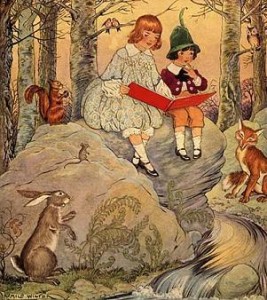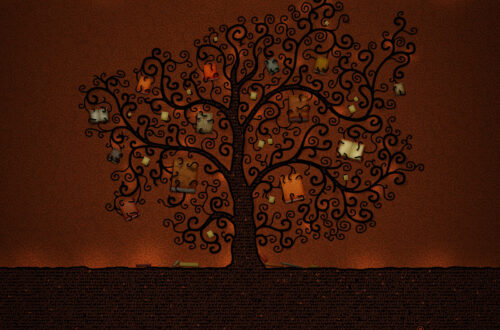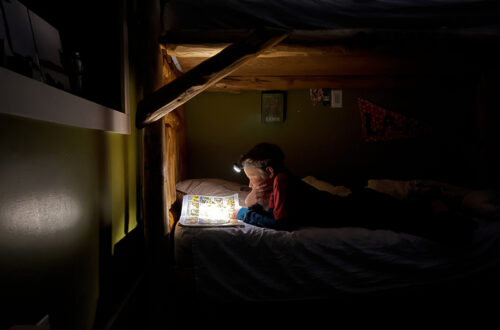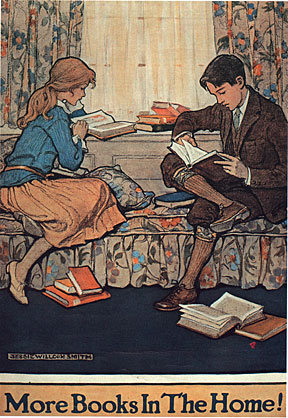Guidelines in reading
Younger Daughter has been on a Disney books kick for… months now. It has brought these books onto my radar more, along with their frequent supernatural and occult ingredients: tarot cards, sorcerers, etc.
I find my opinions about such content are hard to systematize. The Narnia books have witches in them. Tolkien’s world is populated by sorcerers. And in the New Testament, the disciples cast lots to determine who will replace Judas. So any notion of being categorically against any of these things goes out the window. Yet I find that they bother me in some stories, and don’t bother me in others. It’s difficult to get beneath my reactions to the underlying principles on which they’re based.

What it has led to is a situation earlier this week in which I was doing my morning exercise routine while Younger Daughter lay on the couch with the latest princess book, periodically asking, “Mommy, this has a witch saying ‘X.’ Is that okay?” or “The princess just did ‘Y,’ is that okay?”
Finally I turned off the exercise video and gave her my full attention. “Here’s the deal,” I explained. “I want you to learn how to judge for yourself what you’re reading.” Both daughters were there, and this issue has come up with Older Daughter too, who has a very sensitive conscience about her reading. So I came up with these two principles — two things that might prompt me to set a book aside.
1.) If the book is teaching something that goes against what God’s word teaches. For instance, the Bible teaches that certain qualities of character make for a hero. Is the book I’m reading suggesting that the “good guy” murders, or tries to manipulate or destroy or steal? Is it saying that certain behaviors are desirable that the Bible says are destructive? All around us in the world, there are behaviors and ideas that we don’t agree with, or that the Bible steers us away from. It doesn’t mean we go around condemning everything. But it does mean that we take care about what we put into our minds and hearts in what we read. If a book seems to be making an argument contrary to God’s word, that is one reason to put it aside.
2.) If the book makes me uncomfortable — a little scared, or depressed, or just troubled — I might set it aside. That might be the Holy Spirit talking to me. There’s simply no point in reading something that makes me uncomfortable in these ways.
I went on to point out that as they get older, the girls will read lots of things they don’t agree with in the course of being educated. These books can serve a purpose; they can help us to examine our beliefs more closely, and test or defend them. They can strengthen our minds and hearts in this way.
“Yes,” said Older Daughter. “An inoculation gives you a little dose of a sickness to teach your body how to fight it off. It’s like that.”
But for right now, in the books the girls are reading for pleasure, these are two guidelines for evaluating whether to keep reading or to set it aside. They are the ones that occurred to me… I don’t recall ever having talked about this with anyone when I was growing up. I was given complete freedom to read whatever, and I developed (I suppose) my own navigational system. There is a side of me that wonders if that might be the best way to proceed. But I was getting so many questions that I tried to address the subject this way.
What would you have said — or would you have kept quiet?



4 Comments
Barbara H.
I think that was valuable advice.
I really struggled with the sorcerers in LOTR. I hadn’t let my kids read anything with witches in it as they were growing up. Finally I concluded that these sorcerers were not like real life witches. Real life witches can’t do what they did. They were more like Middle earth super heroes. After a while I concluded there was a difference between “fairy tale” magic and the real thing as well. In fairy tales the witches are the representation of evil in the classic good vs. evil story, but, again, not like real witches (who can’t turn people into frogs, etc.).
It’s hard some times to explain to the kids, or even sort out for myself, exactly where to draw the lines. For instance, I usually avoid books with explicit sexuality, but there is a bit in Roots, which I just read. But it didn’t seem to be there just to tantalize, just to throw those scenes in. In one scene where a white master raped a female slave — those horrible things actually happened, and it was described, yet not given any more detail than necessary.
But I think it is by reading that those discernment muscles are developed.
And I definitely agree that if there is any sense while reading that this is something I shouldn’t be reading, it should be set aside, at least until there’s time to pray about it more. It may very well be the Holy Spirit’s warnings. I don’t know if I told you about a situation like that with a library book one of my kids wanted to read years ago. As soon as he showed me the title, there was some sense that this was not a good book. But it “seemed” innocent, so we got it — and it was one of the most warped New Age books I had ever seen, encouraging kids to rebel against their parents, to “drop everything they had ever learned,” complete with a message from the “spirit guide” in the back. I wanted to throw to away instead of turning it back in, except I’d have to pay for them to get a new one.
Janet
Thanks for the great food for thought! I like your analogy of “muscles.”
It’s true that it’s kind of complicated to try and define where my lines are. It’s interesting to me how ably children seem to deal with complication. I feel like I need to keep it simple, but some things aren’t simple, and they understand that already.
Carrie, Reading to Know
Definitely valuable advice! I love it, in fact. I’m still wrestling with how to explain it to my own kids (it’s starting to come up a bit more, here and there) and you’ve listed your reasons very nicely. I might borrow, if you don’t mind!
Janet
My pleasure, Carrie! Thanks for coming by.